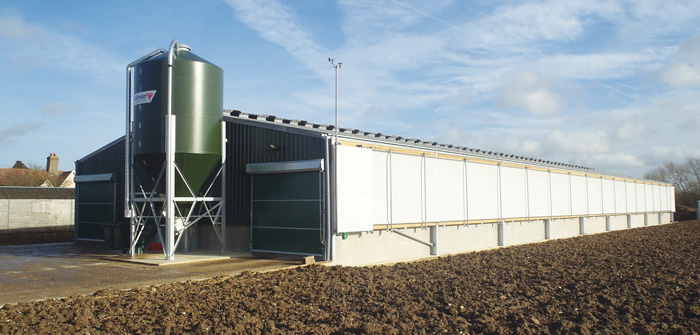Alistair Driver delves into the detail to discover what the Bill means for pig producers
The long-awaited Agriculture Bill has had a somewhat mixed reception across UK farming – but it might just present some opportunities for the pig industry.
Michael Gove’s Bill, presented to Parliament in September, spells the end of direct payments by 2027. They will be replaced by a ‘public money for public goods’ system, which will be gradually phased in during a seven-year agricultural transition, commencing in 2021.
Support payments will increasingly be targeted at activities that deliver better environmental outcomes, such as better air and water quality, improved soil health and public access to the countryside. Trials for a new Environmental Land Management system will start from next year.
Significantly, there will also be funding for higher animal welfare and health standards, details of which will be fleshed out with industry, with the first welfare pilots due to begin in 2020.
Mr Gove stressed that the Bill would be ‘underpinned by measures to increase productivity and invest in R&D’, including funding for farmers to invest in new technologies, equipment and methods that boost productivity. There will be support for new entrants.
It also sets out how the Government will strengthen transparency in the supply chain to help farmers get a better deal in the marketplace.
But the Bill, which Mr Gove said would help deliver a Green Brexit, drew some stinging criticism from within the farming industry, reflecting the long-held belief that the Defra Secretary’s post- Brexit vision for UK agriculture places far too much emphasis on the environment and not enough on farmers’ core role as food producers.
NFU president Minette Batters said the Bill ‘falls short of our aspirations for a progressive, profitable and sustainable food and farming sector post-Brexit’.
These sentiments are certainly shared by some within the pig sector. But, according to NPA senior policy advisor Ed Barker, while producers are right to question the direction of travel and the strings that can be attached to Defra funding schemes, there could be some real opportunities in there for an historically unsupported sector.
“For example, there are provisions in the Bill to improve productivity ‘outcomes’.
While nothing is certain, there is scope to explore possible loans and grants for new buildings, technology and equipment. Lack of investment is a recurring problem in this sector, but this could help unlock much- needed funding to improve productivity and deliver even higher animal health, welfare and environmental standards,” he said.
He gave a ‘cautious welcome’ to the planned health and welfare schemes. “It is good to see health and even disease eradication now being mentioned in the same bracket as welfare, which wasn’t always the case,” he added.
“However, the Bill mentions animals expressing ‘natural behaviours’ under the new welfare schemes, which is vague and open to interpretation. Defra is clear that these schemes will be designed with industry input, so we will do our utmost to ensure they incentivise positive, achievable outcomes for the pig sector, rather than pursuing any misplaced agendas.”
The new environmental stewardship scheme could include funding for activities like slurry management and water protection. It appears to offer more flexibility to push for specific options that could benefit outdoor pig producers than current Pillar Two schemes, Mr Barker said.
“Powers to collect data from the supply chain could help deliver greater transparency on price reporting, but we need to know more about what the information will be used for,” he added.
The Bill presents plenty of challenges, too, not least the fact that there is no clarity on the budget after 2021. “I can‘t imagine it is going to get any higher,” Mr Barker said.
“There is also very little in there on producing high quality food or public procurement, which Mr Gove has been very vocal on. There also appears to be a tacit nod towards raising the regulatory baseline over time, which could hold dangers for the pig sector.
“And we need to bear in mind this is only a Bill that could be amended or steamrollered by any future governments!”
Agriculture Bill – five key points
- Direct payments to end in 2020;
- Payments to be ‘de-linked’ from land in agricultural transition;
- Payments to be reduced over time, with biggest cuts to largest payments;
- Most of re-directed ‘public good’ funding for the environment; and
- Bur plans for a new animal health and welfare scheme.




